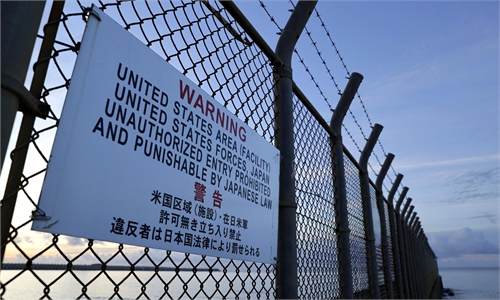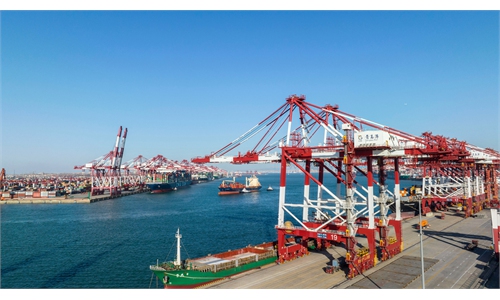
Illustration: Chen Xia/Global Times
The Bank of Japan (BOJ) announced on Wednesday that it would keep ultra-easy monetary policy unchanged after its first two-day rate-review meeting of 2023. The BOJ kept intact both short-term and long-term interest rates at rock-bottom levels, with minus 0.1 percent for short-term and around 0 percent for the 10-year yield.While the latest rate decision didn't come as a policy shock like the one in December, market expectations that the BOJ would move toward an exit from ultra-easy monetary policy haven't waned. Last month, the central bank lifted its cap on 10-year government-bond yields from 0.25 percent to 0.5 percent, which set off speculation about a potential shift away from its massive stimulus program.
Indeed, there is good reason to believe such a policy shift could happen this year as pressure from a weak yen and rising consumer prices is building up. After over a decade of super-loose monetary policy, the Japanese economy appears still in the doldrums. The BOJ on Wednesday also slashed its economic growth projection for fiscal 2023 to 1.7 percent, with the forecast for 2024 down to 1.1 percent, amid worries that slowing global growth will weigh on the export-reliant economy.
The performance of the Japanese yen is also worrying. As a result of aggressive interest rate hikes by the US Federal Reserve, the yen's value plunged 14.5 percent in 2022, the worst-performing currency in Asia over the year. The weak currency also contributed to high levels of trade deficit.
Meanwhile, Japan's core consumer prices likely rose 4 percent in December, doubling the central bank's 2 percent inflation target and hitting a fresh 41-year-high, according to the latest Reuters poll of economists. Core CPI surged 3.7 percent in November, the highest since the 4 percent recorded in December 1981.
In this context, there is a growing belief that the BOJ's ultra-easy policy will only make things worse rather than addressing its current economic problems. But if the BOJ shifts away from its current monetary policy, a tightening shift may tip its already sluggish economy into a recession.
If anything, the economic predicament faced by the Japanese economy reflects its deviation from Asian cooperation is taking a toll. Japan's mindless following of the US on issues ranged from geopolitical ones to economic ones is undermining its long-term economic strength by curbing the room for maneuver in terms of strengthening regional cooperation.
As international agencies and financial institutions expect Asia's emerging economies to have grown much faster in 2022 compared with the growth forecasts for the global economy and developed economies, Asia is now recognized as the region with the best economic performance in the world. Against this backdrop, strengthening regional cooperation should have been another opportunity for Japan's economic development. And it is regrettable that Japan seems to have chosen to ignore such an opportunity.
Fundamentally speaking, a series of economic and geopolitical conditions have determined that Japan could have enjoyed the dividends of regional cooperation instead of being left behind. Japan is one of the few developed economies in Asia, with remarkable technological advantages in the regional industrial chain. Meanwhile, it maintains close ties with Western developed economies on many fronts.
Therefore, an active role in Asia-Pacific cooperation could have helped Japan to advance and balance its ties with the US, while the cooperation with the US could have been used to boost its integration in Asian industrial chain. But now Japan has shown the tendency to blindly follow Washington's "decoupling" push, especially on the US chip ban, which is actually a sign that it is losing the ability to balance external cooperation.
China is an integral part of the Asian industrial chain, and any problem in cooperation between Japan and China will hinder Japan's cooperation in Asia. Japan needs to understand a full tilt toward the US is not in its interests, especially when its economy is in a quandary.
The author is a reporter with the Global Times. bizopinion@globaltimes.com.cn




